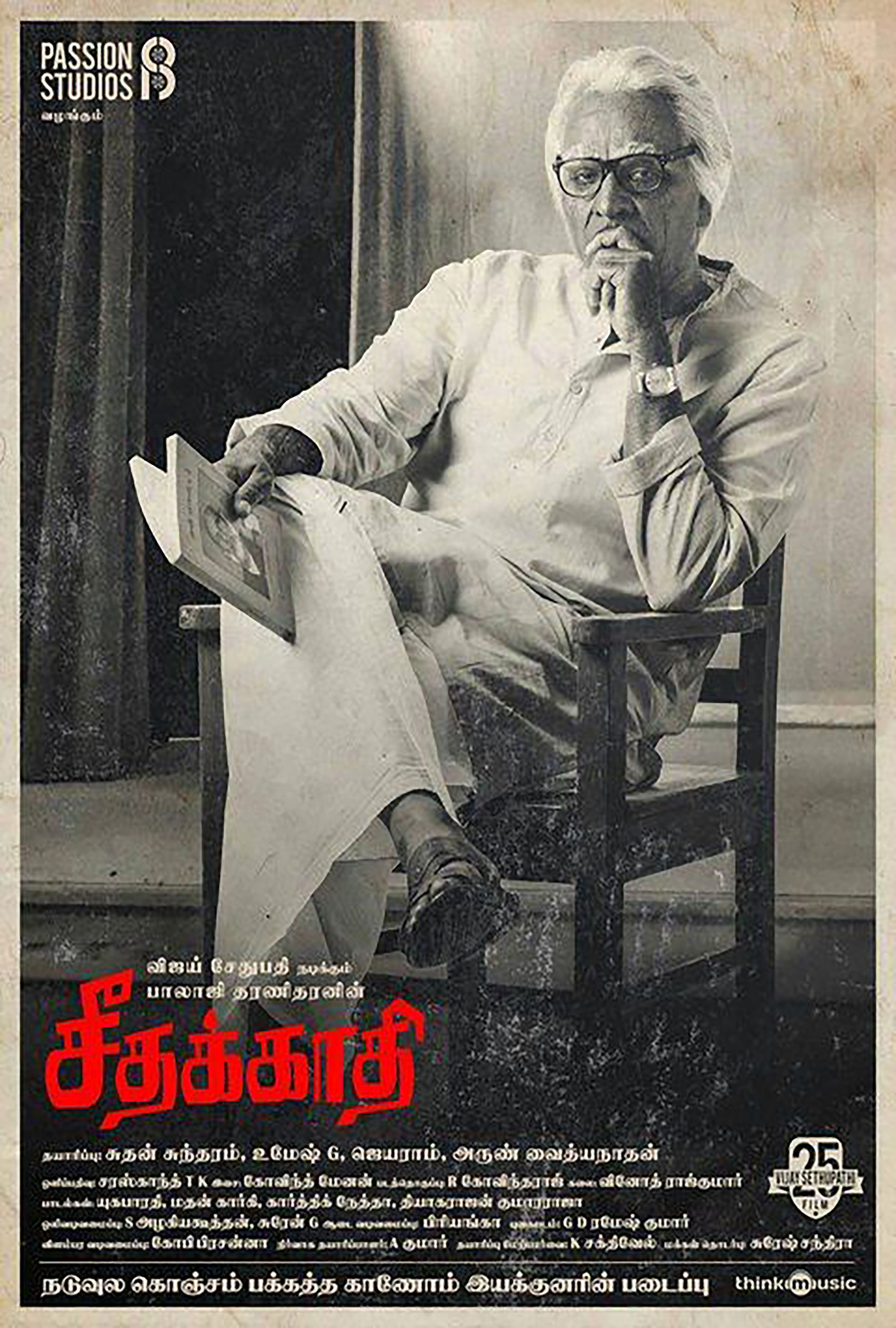With cinemas still closed here in Melbourne. I’ve just got round to watching Tughlaq Durbar online. Advertised as a political satire, the film is based on a good initial idea but the story fails to capitalise on this as well as expected. There is plenty of comedy that works well and Vijay Sethupathi is his usual charismatic self, but overall the film fails to engage especially in the second half.
Singaravelan (Vijay Sethupathi) aka Singam is a fanatical follower of local politician Rayappan (Parthiban) and has been since birth. In fact, he was born during one of Rayappan’s political rallies, and this seems to have imbued the young Singam with a devotion to his leader that surpasses all other ties. Singam’s mother died shortly after giving birth to his sister, Manimegalai (Manjima Mohan) and after their father also dies, the pair are brought up by the local community. However, Singam’s fanaticism causes him to be cruel and unfeeling to his sister, and as a result she stops speaking to him – although it’s not clear if Singam even notices. The worst thing to note about Singam is that he also hates dogs, something that ensures that to me his character appears as black and evil as possible for a small-time political wannabe.
Despite the best efforts of the party faithful, who have no time for the young upstart, Singam manages to ingratiate himself with Rayappan. After various shenanigans mainly manipulating Rayappan’s right hand man Managalam (Bhagavathi Perumal), Singam manages to be nominated as the candidate for his home area. However, an argument with Managalam at a party celebration results in Singam being hit on the head, with a rather unusual result.
Somehow the head injury brings about a split personality with a ‘good’ Singam who loves his sister, likes dogs (already he’s won me over!) and is concerned about the community, and the ‘normal’ Singam who is only interested in keeping Rayappan happy. I loved how this is shown on screen with Singam’s shadow gradually splitting as he walks down an alley way underneath flickering overhead lights. It makes it really clear what is happening, just as Singam’s sudden appreciation of dogs makes it clear that this is a completely different personality. I also appreciated that Singam develops a left eye blepharospasm when his personality shifts, and his best mate Vasu (Karunakaran) finds this a helpful indication of just when Singam is going to do something unexpected.
Having set the scene with a great idea and a couple of excellent segments where ‘good’ Singam takes over to thwart ‘normal’ Singam’s plans, writer/director Delhi Prasad Deenadayalan seems to run out of steam. Once Singam is nominated to run on the party ticket, the film turns into a rather plodding tale of stolen money and the usual corruption associated with politicians. I couldn’t decide if Deenadayalan was trying to make a statement with some of the rambling dialogues or if he just thought that every film based on politicians should make some mention of corruption. Some of the dialogue is brilliant such as that around Rayappan’s need for an unthinking fanatical follower who will do whatever is needed, or Singam’s response to his sister being abused at her workplace. But outside of the comedy, much of the rest is rote and repetitive.
Particularly disappointing is the sidelining of Manimegalai, especially since she is apparently one of the reasons behind ‘good’ Singam’s plans for the area and a catalyst for change. There was so much more that could have been achieved using the relationship between the brother and sister but after a good start Manimegalai becomes nothing more than the symbol of the difference between ‘good’ and ‘normal’ Singam.
There is also a rather shaky romance with Kamatchi (Raashi Khanna), the daughter of a local money lender that Singam kidnaps for ransom. It’s mostly one-sided with Kamatchi falling for Singam except for 1 song which feels rather out of place with the switch to Singam mooning after Kamatchi. As the standard love interest, the character of Kamatchi is nothing more than a reason for a fight scene, or a way for Singam to get the money he needs. Overall, it’s the comedy that works best in the film, with the story seemingly taking second place to the set-up of these comedic skits. Vijay Sethupathi, Parathiban and Karunakaran are excellent comedic actors, and all deliver good performances but the lack of a good story means that the film drags once the set up is done. However, Govind Vasantha’s songs and background score are good, especially the more upbeat political rallying number although none are particularly memorable. The film looks good too, and the lightening in particular is superb in many of the sequences adding to the distinction between the two versions of Singam.
This should have been a much better film, with a good cast, novel idea and good comedic dialogue. But there is no emotional heart to the film, and without a good follow-up plot, good performances aren’t enough to make this anymore than a one-time watch. It’s not terrible, but the most disappointing part is that Tughlaq Durbar could have been so much more. 2.5 stars.








































